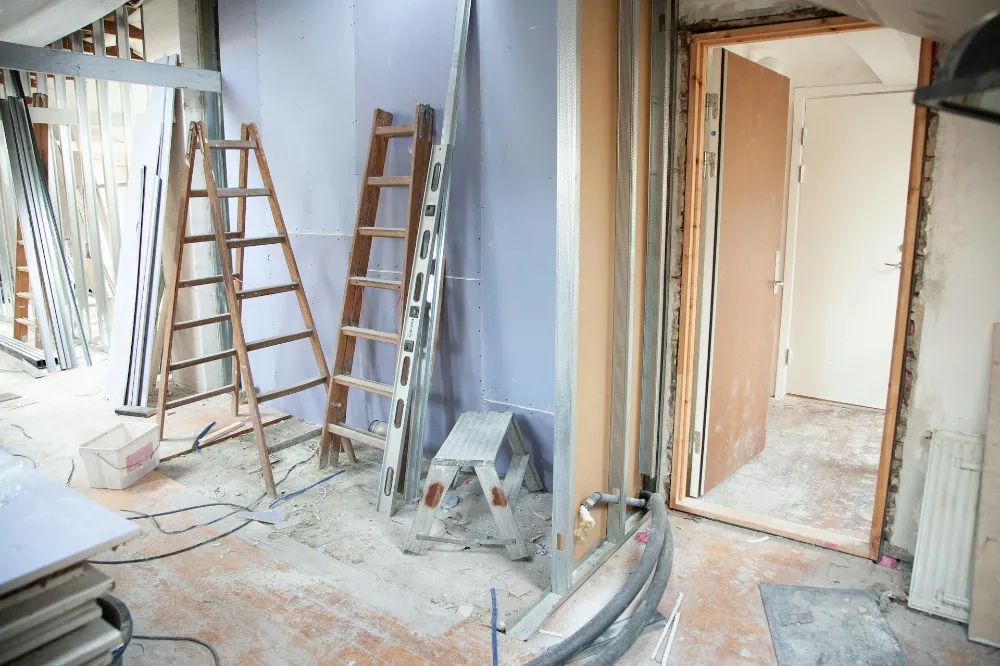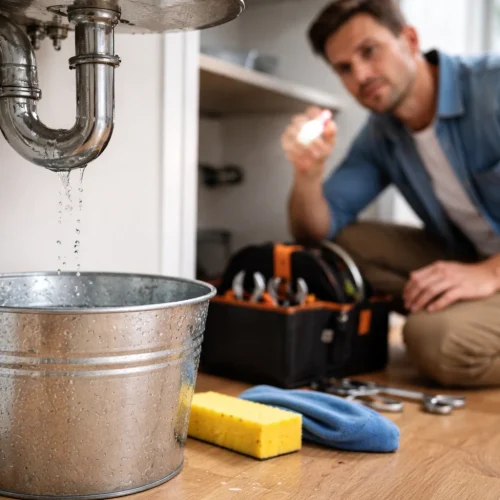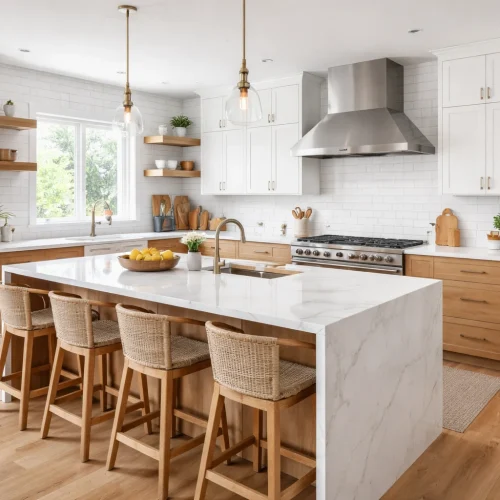
Constructing a home is one of the most exciting milestones in life, but it can also become quite challenging if not managed carefully. From dealing with construction crews and selecting materials to managing timelines and budgets, the process requires careful planning and attention at every stage. A smooth construction journey requires making informed choices and staying proactive.
This guide will walk you through some effective strategies to ensure your home construction experience is as stress-free as possible, from the very first step until you turn the key in the door.
Start with a Clear Vision and Realistic Budget
Every successful home build begins with clarity. Before hiring a contractor or buying materials, you need a solid idea of what your home should include. This means deciding on the number of rooms, the layout, and any features that matter most to you. A vague vision often leads to changes mid-project, which can raise costs and delay progress.
Alongside the vision comes the budget. It is not enough to calculate what you can afford for materials and labor. You should also plan for hidden or unexpected expenses. Leaving extra room in your budget ensures you are prepared rather than caught off guard.
Plan for Storage and Secure Your Belongings
Home construction means that your property becomes a busy worksite. Tools, machinery, and materials need space. If you are rebuilding a current space or extending it, your existing belongings can easily get in the way. Without proper storage, there is a higher risk of damage, clutter, or even theft. Planning storage in advance makes the site safer and keeps your possessions protected.
If your construction company does not provide a storage solution, renting a container can be a practical option. For homeowners who anticipate long-term storage needs, buying a shipping container may be a smart investment. Many providers offer shipping containers for sale, giving you the flexibility to use them throughout the project and even afterward for personal storage or other purposes.
Choose the Right Construction Company
The contractor you select will determine much of your experience, so it is worth spending time to find the right one. A reliable construction company brings expertise, skilled workers, and a track record of delivering quality homes. Look for companies with licenses, insurance, and examples of past projects that align with your vision. Recommendations from previous clients can provide valuable insight into how the company communicates and meets deadlines.
Equally important is the relationship you establish with your builder. Open, respectful communication should be clear from the beginning. Also, make sure everything you agree on is put into writing, from timelines to costs and responsibilities.
Secure All Necessary Permits Early
One of the biggest causes of construction delays is missing or late permits. Before breaking ground, check with your local authorities about the requirements for your specific project. Permits ensure that your home meets safety and zoning regulations. Yes, it may feel like a hassle to go through paperwork, but skipping or delaying this step can result in costly fines or forced pauses in construction.
Many contractors will assist with the permit process, but as the homeowner, it is wise to stay involved.
Focus on Quality Materials and Reliable Suppliers
The materials you choose are more than just the visible finishes. They determine the long-term durability of your home. Cutting corners with cheaper materials may save money upfront, but it often leads to higher repair costs later. From structural elements like concrete and wood to finishes like flooring and tiles, investing in quality pays off in both appearance and strength.
Working with reliable suppliers also makes a difference. Delayed or incorrect deliveries can throw off schedules and raise costs. Establishing relationships with trusted providers who have a history of consistency can help your project stay on track.
Establish a Realistic Timeline
Time management is one of the most overlooked parts of home construction. Many homeowners want their house ready as quickly as possible, but rushing a build usually leads to mistakes and lower quality. Setting a realistic timeline from the start makes a huge difference. Work with your builder to break the project into phases and assign clear deadlines for each stage.
It is also important to factor in possible delays. Weather, supply shortages, or inspection schedules can all impact construction. Instead of viewing delays as failures, treat them as natural parts of the process.
Keep Communication Open with Your Builder
Strong communication is the backbone of any successful project. From the first meeting to the final walkthrough, you need regular updates from your builder. Weekly check-ins or site visits give you a chance to ask questions and address concerns before they grow into larger problems. Many homeowners find it helpful to keep a shared document or email trail to record discussions, agreements, and changes.
Clear communication also builds trust. When your builder explains the progress and challenges openly, you feel more confident in their work.
Prioritize Safety on Site
A construction site can be dangerous if safety is not treated as a priority. Accidents not only harm workers but can also delay the project. Basic measures, such as clear signage, protective gear, and restricted access, create a safer environment. As a homeowner, you should avoid entering the site without proper guidance.
Contractors should also follow safety standards and keep the site organized. Proper storage of tools, secure scaffolding, and clean pathways all reduce risks. Safety might seem like the responsibility of the builder, but your involvement matters too. Asking questions about safety practices and observing the site regularly shows that you value a secure process.
Plan for Inspections and Final Walkthrough
Inspections are checkpoints that confirm the project meets building codes and quality standards. They should not be seen as obstacles but as safeguards. Scheduling inspections throughout the process allows issues to be corrected before they become bigger problems. Whether it is checking the foundation, electrical systems, or plumbing, inspections provide reassurance that your home is built to last.
The final walkthrough is your chance to review every detail before moving in. Take your time, look closely at finishes, test fixtures, and ask about anything that does not look right. This is the moment to ensure that promises made in the contract are fully delivered.
When you construct or rebuild a home, you would want to create a space that reflects your vision, supports your lifestyle, and gives you peace of mind for years to come. The process may not be easy, but approaching it with preparation and patience allows you to stay in control. Every decision, from planning timelines to choosing materials, becomes part of a larger journey toward building a place that feels uniquely yours. When you step into your finished home for the first time, the effort and care invested will make the experience even more rewarding.













